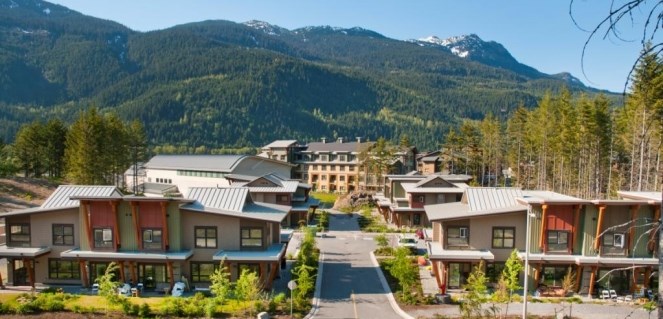It took a push from the provincial government, but the Resort Municipality of Whistler (RMOW) is getting ready to begin production of a report that officials say will give decision-makers better insights into the resort’s long-term housing needs.
In April 2019, B.C.’s Local Government Act was amended to require municipalities to collect housing data, analyze trends, and ultimately produce a report that describes their community’s current and anticipated housing needs by April 2022, and every five years thereafter.
To help fund that work, the province provided $5 million to the Union of B.C. Municipalities to distribute over three years. The RMOW is eligible for $20,000 in grant funding based on its 2016 population base.
While the municipality is no stranger to analyzing housing data—the most recent comprehensive study was released in late 2017 to go along with the Whistler Housing Authority’s (WHA) annual needs assessments—this round of analysis will draw on a number of data sources that the RMOW did not have access to previously.
“It’s been a long time coming and it’s a shame we had to wait for the province to give us a kick,” said Councillor Duane Jackson at the Oct. 6 regular meeting of council. “The information we’re going to get back is far superior that the WHA needs assessment, which is relying on self-reporting.”
The province has provided municipalities with more than 50 distinct pieces of data to collect that will look at everything from current and projected population figures, household income, significant economic sectors in the resort, as well as the currently available and anticipated housing units.
“Through these available datasets that have been made publicly available for free, we can set a very good ground level and template to build off of with our analysis,” explained Richard Kemble, economic development analyst with the RMOW.
However, due to the “very unique set of needs” in Whistler’s housing market, Kemble said the RMOW will be bringing in additional data to supplement the report, including recent tax-filing and demographic data from Statistics Canada, the results of the RMOW’s 2017 housing report, visitation data from Tourism Whistler, internal municipal planning data, local school enrolment numbers, and information on homelessness from the Whistler Community Services Society.
“Whether we get the funding or not, I think this is critical work,” Jackson added. “I think we have everything in place to manage that data when it comes in. I think it’s been the missing link and I’m just so excited about it.”
The RMOW will place a particular emphasis in its data collection on housing affordability and understanding the forces that have influenced the market in recent years.
“This is going to be looking at the continued limited housing supply, continued rising prices, which have not let up in recent years, and also the impact of COVID-19,” Kemble said.
On the COVID front, Kemble said the RMOW is keen to gain a better grasp on the stresses the pandemic has placed on Whistler’s housing supply and demand, and how it has shifted the utilization of homes in the community.
“[COVID] is bringing new considerations for the demand of Whistler housing as the remote workforce becomes a more prominent feature, and also [a rise in] city residents moving to more desirable locations in rural communities,” he noted.
Coun. Jen Ford also urged staff to collect employment data that would otherwise have been carried out by the WHA in its annual housing needs assessment, which did not go ahead this year due to the pandemic.
“[That] was a very consistent metric for us to understand how many employees were living locally,” she said of the assessment. “It’s one thing to understand how many people live here. It’s another thing to understand how many employees are required to keep this town going.”
The deadline for the grant application is Oct. 16. If the application is successful, the RMOW will have a year to complete the report from the time the grant is received, after which it will be posted on whistler.ca.




